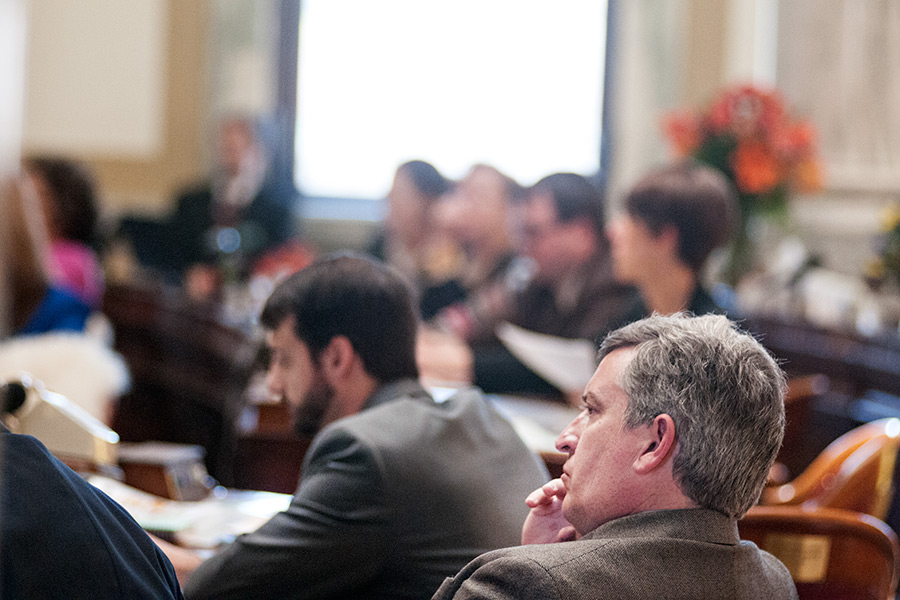Legislative Bills Emerge with Alcohol Law Changes in Mind
Civic leaders push for increased license opportunities to encourage downtown restaurants
By Dillon Tabish
Four separate bills are poised to materialize in the coming days and weeks focused on a familiar source of conflict in the state capitol.
Changes to the state’s alcohol regulations, particularly the complicated and contentious quota system, never come without conflict, and a new showdown is scheduled to begin this week. Great Falls Republican Rep. Bruce Grubbs is sponsoring House Bill 412, which would allow cities to set their own quotas for all-beverage and retail beer licenses. The measure is scheduled to receive a committee hearing on Feb. 15. Kalispell Republican Rep. Frank Garner is a co-sponsor.
“I’ve heard a lot from our development community and locally from people that are concerned that the current quota system is inhibiting investment in our community and keeping restaurants and other like businesses out because beverage licenses aren’t available,” Garner said.
Montana has a quota system regulating the number of licenses that allow bars, restaurants and casinos to sell alcohol, dating back to the original law’s inception in 1947 after Prohibition ended. Quotas are established for each city and are based on population. Every major city in Montana has surpassed its allotted quota. In Kalispell, which has a quota of 16 liquor licenses, there are 30.
The primary concern surrounding any changes to the quota system center on the depreciated value of current licenses if the system were expanded. All-beverage licenses, which allow the sale of liquor, can garner more than $500,000 in Kalispell.
Protecting current license holders from economic harm is important if any changes do gain support, Garner said.
“It’s very important to me that we try to work on a policy that will help them retain that equity in those current policies while still looking for a way to try to open up and give local governments a tool to open up those opportunities,” Garner said.
The licenses in Garner’s bill would not allow for gaming.
Garner said he has heard from several of his constituents about the lack of alcohol licenses in downtown Kalispell.
“(The current law) keeps businesses from coming downtown. You can’t have a system that prevents additional business competition and investment in a community. That’s kind of where we’re at right now.”
Another bill would allow city councils to approve beer and wine licenses in specific urban renewal and downtown business improvement districts. These licenses would require an annual renewal fee and would only be allowed to stay within the specific districts. They would be non-transferrable.
“It would put it into the hands of local jurisdiction, so city council could say this area is prime for us to be able to authorize beer and wine licenses if they come through,” said Pam Carbonari, coordinator with the Kalispell Business Improvement District and Kalispell Downtown Association, who is helping promote the bill.
“It really wouldn’t threaten the other licenses out there because they can’t move these new licenses anywhere else in the city.”
The beer and wine licenses would allow establishments to stay open longer than 8 p.m., which is when breweries must stop serving under their brewer’s license. Patrons would not be required to eat food at these establishments, either, as required for places with cabaret licenses.
Civic and business leaders are in the midst of an effort to revitalize the heart of Kalispell, and many believe the addition of restaurants will play a key role in the success of the city’s efforts.
“I don’t see urban renewal really happening in an area if you don’t have the opportunity to have restaurants,” Carbonari said. “Without that ability, how much economic success are we going to have?”
Another bill being proposed would allow senior housing establishments to serve beer and wine to residents. A fourth bill would let colleges, such as Flathead Valley Community College, allow students to consume alcohol on campus through a brewery program.